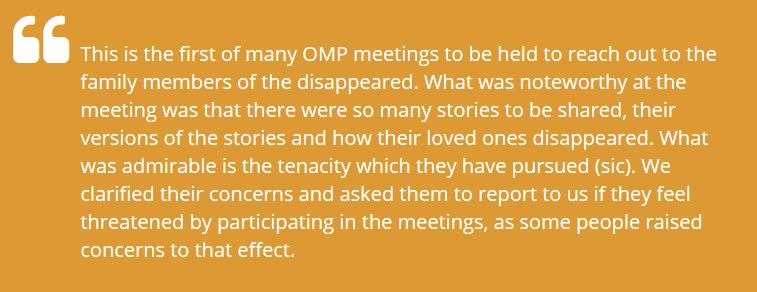Featured

Rajapaksa presidential stakes in deep waters
Former President Mahinda Rajapaksa- though unable to run for President in 2020- found himself at the centre of an evolving controversy last week as the respected American newspaper the New York Times implied in an article that China has inveigled Sri Lanka into a ‘debt trap’ during Rajapaksa’s Presidency.
The article in question was titled ‘How China got Sri Lanka to cough up a port’ and was written by Maria Abi-Habib, the newspaper’s South Asia correspondent based in New Delhi. The article appeared in the New York Times on June 25 and acknowledges contributions from journalists from Beijing as well as two senior journalists in Sri Lanka.
While the New York Times has an established reputation as a newspaper of integrity, Abi-Habib also has impressive credentials. Among other achievements, in 2012 she investigated atrocities in a military hospital in Kabul in Afghanistan that led to the resignation of an American General.
The article paints a picture of Sri Lanka as a “small country hungry for financing”. It claims that China offered loans to Sri Lanka that could not be sustained to build the port in Hambantota and that, as a result, “under heavy pressure and after months of negotiations with the Chinese the government handed over the port and 15,000 acres of land around it for 99 years in December”.
The article claims that the port “gave China control of territory just a few hundred miles off the shores of a rival, India, and a strategic foothold along a critical commercial and military waterway” and observes that “the case is one of the most vivid examples of China’s ambitious use of loans and aid to gain influence around the world”.
More damaging for Rajapaksa is the claim that engagement with the Chinese was linked to his election campaign. The article claims that “during the 2015 Sri Lankan elections, large payments from the Chinese port construction fund flowed directly to campaign aides and activities for Mr. Rajapaksa, who had agreed to Chinese terms at every turn and was seen as an important ally in China’s efforts to tilt influence away from India in South Asia”.
Hambantota Port
The newspaper states that “the payments were confirmed by documents and cash checks detailed in a government investigation seen by The New York Times”. It also notes that “Rajapaksa and his aides did not respond to multiple requests for comment, made over several months, for this article. Officials for China Harbor (the company engaged in the construction of the port) also would not comment”.
The decision of the Rajapaksa government to build a port in Hambantota could be criticised as bad judgment, because the port- like the airport in Mattala- has not been a commercial success. However, of more concern to Rajapaksa, the Joint Opposition (JO) and the Sri Lanka Podujana Peramuna (SLPP) is the insinuation that this decision was quid pro quo for funding provided to Rajapaksa for his 2015 presidential election campaign.
The article does provide details about this, which, if accurate, would be of concern. “At least US$7.6 million was dispensed from China Harbor’s account at Standard Chartered Bank to affiliates of Mr. Rajapaksa’s campaign, according to a document, seen by The Times” the article claims.
“With 10 days to go before polls opened, around US$3.7 million was distributed in checks: US$678,000 to print campaign T-shirts and other promotional material and US$297,000 to buy supporters gifts, including women’s saris. Another US$38,000 was paid to a popular Buddhist monk who was supporting Mr. Rajapaksa’s electoral bid, while two checks totalling US$1.7 million were delivered by volunteers to Temple Trees, his official residence,” the article claims.
This is hardly the kind of publicity that the Rajapaksa camp would wish for, with presidential elections due in eighteen months, even if Mahinda Rajapaksa is himself not a candidate. Predictably, the government- or at least, its United National Party (UNP) faction- has gone on the offensive.
Social Empowerment Deputy Minister Ranjan Ramanayake has lodged a complaint with the Financial Crimes Investigation Division (FCID) regarding the allegations made in the New York Times article and State Minister of Power and Renewable Energy, Ajith Perera has challenged Rajapaksa to sue the newspaper if the article was defamatory.
Initially, Parliamentarian Namal Rajapaksa, eldest son of the former President pooh-poohed the accusations in the article stating that the New York Times was simply recycling old allegations. However, it was clear that the controversy was gathering momentum and Mahinda Rajapaksa did respond.
Rajapaksa denied the allegations and stated that he was in the process of sending a Letter of Demand to the New York Times. He also said that his party would also be doing the same as the article stated that his party’s campaign was funded by China. However, Rajapaksa did not specify which political party that was because he ran as a candidate of the United Peoples’ Freedom Alliance (UPFA) which he is no longer in control of.
Rajapaksa also issued a detailed statement. “No contribution was made by China Harbour Co to my 2015 presidential election campaign. While claiming that my ‘affiliates’ and ‘campaign aides’ had got the money and that ‘volunteers’ had delivered the cheques to Temple Trees, the writer of the New York Times article has been intentionally vague about who had given this money and who had received it. This seems to be a way of carrying out a smear campaign without incurring any liability”, Rajapaksa said in his statement.
Denial
Rajapaksa also takes issue with the New York Times for the sources of its information. “The NYT writer has stated that they had obtained some of the details in that article from a Sri Lankan ‘government investigation’. Every Sri Lankan knows that the main preoccupation of this government since it came into power has been to sling mud at the opposition” he says.
Despite this rebuttal, the controversy continues, in part due to the tactics adopted by the Rajapaksa camp. This was after JO parliamentarians held a news conference and claimed that the two senior Sri Lankan journalists who have been acknowledged in the article made their contributions at the behest of the government. A photograph of one of the journalists was also displayed at the briefing.
This was to draw a sharp retort from the New York Times. Michael Slackman, the international editor for The Times, called those claims false. In a statement, he said The Times article was rigorously reported and accurate and criticized the JO’s tactics. “It is unacceptable for journalists to be intimidated in this way,” Slackman said. “This action appears intended to silence critics and curb press freedoms, and ultimately deprive Sri Lankans of information in the public interest.”
Meanwhile, the Chinese embassy in Colombo has also now weighed in with its own statement on the issue. The statement from the embassy however does little to clear up the controversy. “The embassy has noticed the New York Times’ article published on June 25, as well as the clarifications and responses by various parties from Sri Lanka, criticizing it full of political prejudice and completely inconsistent with the facts” the statement said. The embassy statement notes that “despite any interference from a third party, China would like to work together with Sri Lanka to actively implement the important consensus reached by the leaders of the two countries” but is silent on the specific allegations levelled in the article.
It is very likely that, fuelled by political pressures, this issue will linger on for some time. Whether the Rajapaksa camp has the nous to take on the New York Times on this matter is a moot point. That is because, publicity of this kind is something that the Rajapaksa, the JO and the SLPP could best do without with national elections on the horizon. At present, however, strategists in that camp don’t seem to view this controversy in that light.
Source : Daily News - Lakdev Liyanagama
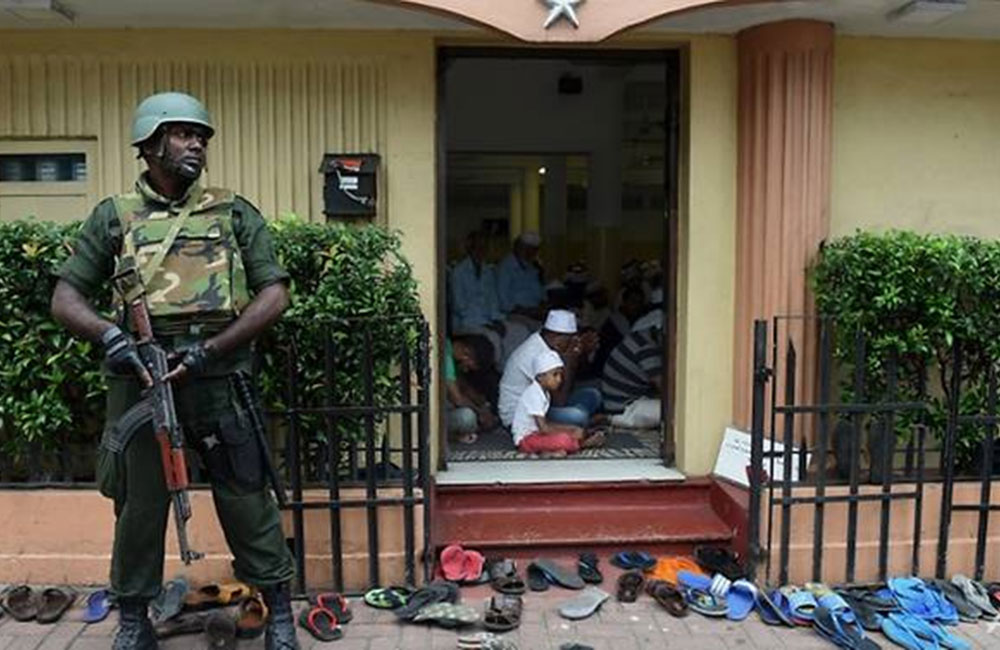
Facebook staff to learn Sinhala insults after Sri Lanka riots
Three months after Sri Lanka was rocked by deadly anti-Muslim riots fuelled by online vitriol, Facebook is training its staff to identify inflammatory content in the country's local languages.
The social network has been seeking penance in Sri Lanka after authorities blocked Facebook in March as incendiary posts by Buddhist hardliners fanned religious violence that left three people dead and reduced hundreds of mosques, homes and businesses to ashes.
Until the week-long ban, appeals to Facebook to act against the contagion of hate speech had been met with deafening silence, at a time when the California-based tech giant was reeling from unprecedented global scrutiny over fake news and user privacy.
"We did make mistakes and we were slow," Facebook spokeswoman Amrit Ahuja told AFP in Colombo.
The dearth of staff fluent in Sinhala - the language spoken by Sri Lanka's largest ethnic group - compounded the issue, with government officials and activists saying the oversight allowed extremist content to flourish undetected on the platform.
Ahuja said Facebook was committed to hiring more Sinhala speakers but declined to say how many were currently employed in Sri Lanka.
"This is the problem we are trying to address with Facebook. They need more Sinhala resources", said the island's telecommunications minister Harin Fernando.
Since the violence broke out in March, two high-level delegations from the company have visited Sri Lanka, where ethnic divisions linger after decades of war, to assure the government of its intent.
Ahuja said Facebook was working with civil society organisations to familiarise its staff with Sinhala slurs and racist epithets.
Complex local nuances have added to the challenge. The word for "brother" in Tamil - also an official language in the country - can be a derogatory term in Sinhala when a slight inflection is used.
DESPERATE MEASURES
Fernando said the decision to impose an island-wide blackout on Facebook - used by one in three Sri Lankans - was taken as a last resort to prevent an escalation of violence.
Buddhist monks freely shared images of masked men attacking mosques and urged others to do the same in the weeks before the riots erupted in Kandy.
Sinhala extremists used the social network to recruit rioters and organise their travel to the troubled area, from where violence later spread.
A meme in Sinhala, which remained online for weeks, urged death to all Muslims, including children.
A man who reported it to Facebook was told it did not violate "specific community standards".
In addition to government warnings, Fernando told AFP that Facebook users lodged thousands of complaints over extremist content, but were met with silence.
"It was not something that I liked doing. But if we didn't block Facebook, the violence would have spread out of control," he said.
Eventually the army was given special powers to restore order under the first state of emergency declared in the 21-million-strong nation since the end of the civil war in 2009.
"ACTION NEEDED"
Ahuja said Facebook has since taken down "hate figures and organisations" in Sri Lanka including the Bodu Bala Sena, a radical Buddhist outfit that is blamed for attacks against Muslims in recent years.
Its spokesman Dilantha Withanage complained the group and its leader - the notorious extremist monk Galagoda Aththe Gnanasara - were being unfairly targeted.
"We can't even post a photo of venerable Gnanasara on Facebook," Withanage told AFP.
But videos of his sermons can still be seen on the social network. Other extremists have also slipped through the cracks, activists say, despite repeated requests to have their accounts removed.
Last year another extremist Buddhist group, Sinhale Jathika Balamuluwa, urged followers via Facebook Live to storm a UN compound sheltering Rohingya Muslims. Police had to be called in to protect the refugees from the mob.
Several Facebook pages for the group have been blocked in Sri Lanka but the same content can be viewed under alternate names, activists say.
"Facebook is only now being held to account over things that since 2013 were evident...(to) us," said Sanjana Hattotuwa, a researcher who has studied Islamophobia on Facebook in Sri Lanka.
Sri Lanka's Centre for Policy Alternatives said Facebook needed to offer more than "cookie cutter" pledges to clean up its act.
"The time for promises has passed. Action is what's needed, and transparency and accountability," said Hattotuwa.
Featured : Channel News Asia
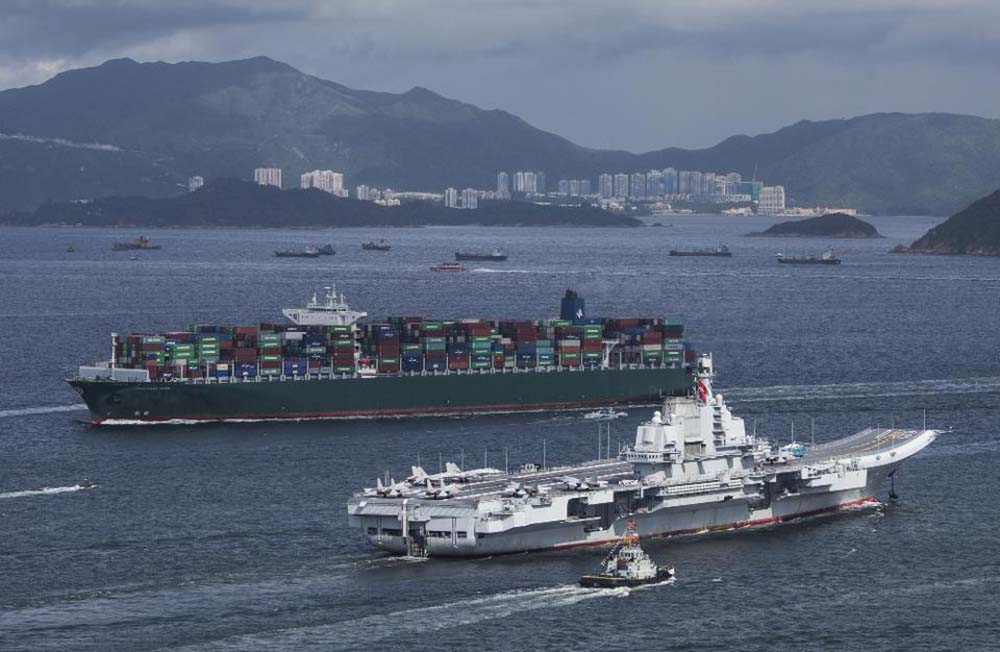
China Is Doing The Same Things To Sri Lanka Great Britain Did To China After The Opium Wars
By Panos Mourdoukoutas
(Forbes) - China is turning Sri Lanka into a modern day “semi-colony,” the same way Great Britain and Portugal turned south China into their own semi-colonies back in the mid of 19th century.
Sri Lanka didn’t lose a war to China. It never ceded any of its territory officially to China. But it handed over economic control of its deep sea Hambantota port to China Merchants Port Holdings (CM Port).
Last week, CM Port made a $584 million payment as part of a $1.12 billion deal to operate Sri Lanka’s deep-sea Hambantota port, according to a Reuters report. Under the agreement, signed in July 2017, CM Port will run the $1.5 billion Chinese-built port on a 99-year lease.
The $1.12 billion total price is to be used to reduce the Sri Lankan government’s debt to China.
In economic terms, this agreement is similar to that China signed back in the aftermath of Opium Wars with the British and the Portuguese, ceding control of its Southern ports to the British and the Portuguese.
China's growing presence in Sri Lanka began back in 2007, when Beijing provided President Rajapaksa both military and diplomatic support to crush the Tamil Tigers. Then followed high profile construction projects and high interest loans that left Sri Lanka heavily indebted to China.
Sri Lanka government debt was standing 77.60% of the country's GDP in 2017, well above the 69.69% average for the 1950-2017 period, according to Tradingeconomics.
Meanwhile, Sri Lanka’s Government Budget deficit stands at 5.5% of the country’s GDP, adding to its indebtedness.
Rising indebtedness comes at a time when Sri Lanka is already living beyond its means, as evidenced by persistent current account deficits, which stand at 2.60% of the country's GDP in 2017.
To cope with a rising debt to China, Sri Lanka has signed agreements with China that swap loans for equity, transforming China into an owner to major infrastructure projects like Sri Lanka’s major port— and a key outpost in the Indian Ocean for Beijing.
This development has irked India, which is slowly becoming encircled by China; and India’s allies that are concerned about China’s aggressive moves to control maritime trade from the South China Sea to the Indian Ocean.
That’s something investors in Southeast Asian markets should keep a wary eye on, as it opens yet another front between the two Asian giants, raising the geopolitical risk of investing in the region.
Markets, for the time being, seem to be ignoring these risks.
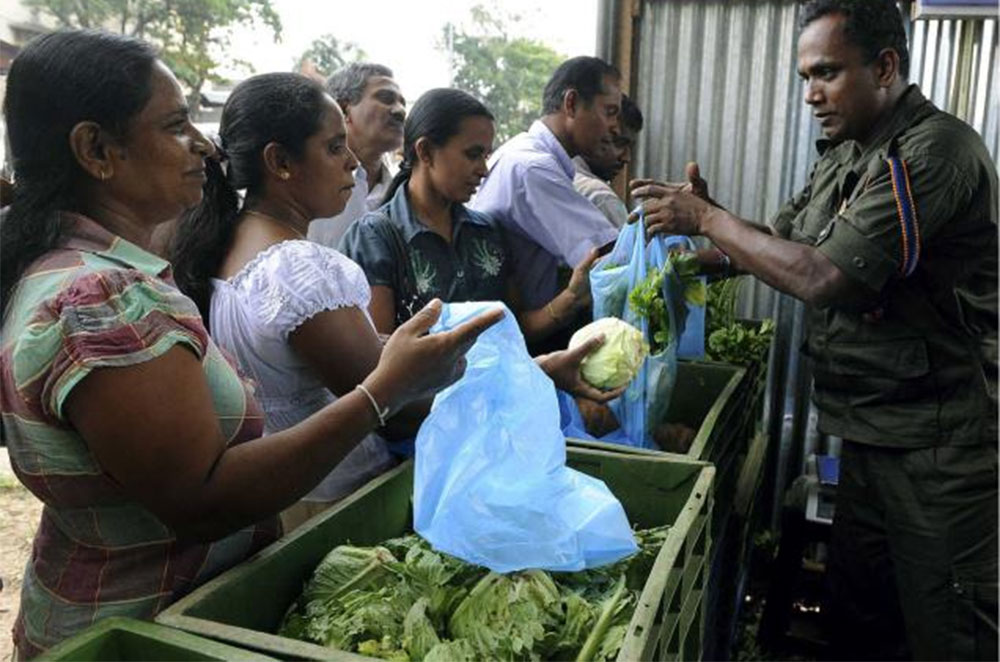
Economic Disparity and Nationalism – Part 3
By Dr. Lionel Bopage
Far right in Europe
Throughout Europe, racialist groups have used the war on terror to create new racist mono-cultural political platforms. With the collapse of the Soviet bloc in the nineties, uncertainty reigned for some time as free markets expanded and some aspects of bourgeois democratic institutions were established. A neo-liberal social development model started expanding horizontally sweeping through Central and Eastern Europe and was accompanied by structural reforms of economic liberalisation and globalisation.
A quarter century later, right wing populist currents gained ground in Hungary and Poland and then spread into France, the Netherlands and the United Kingdom. In the past decade, new right-wing movements have developed into coalitions between Neo-Nazis and the free-market advocates. In a way, this has brought a superficial normalcy to the right wing fascist ideologies in some parts of Europe and they have even gained more electoral grounds. In countries like Poland and Hungary, such right-wing forces are in power. They used national security as a political platform for introducing racism and introduced systemic intolerance by restructuring education, immigration, and the judiciary.
In Italy, a populist anti-establishment Five Star Movement (M5S) that contested the March 2018 Parliamentary elections under the slogan “Participate, Choose, Change” and a regionalist populist League that contested under the slogan “Italians First” formed an alliance this month to form government. The election environment also focused on the apparently irreversible decline of economy, persistent high unemployment and corruption. The campaign of M5S was focussed on anti-corruption and a proposed Universal Basic Income (UBI) for all. The League was an anti-immigrant and anti-EU party like the National Front in France or United Kingdom Independence Party (UKIP) in Britain. It was formerly a separatist party that campaigned for autonomy of Padania, the richer northern parts of Italy.
In many instances, Islamic terror attacks and threats have been used to bolster surveillance and deportation with the tightening of search, arrest, detention and judicial oversight and restraints on ‘suspects’. Young people of colour are increasingly subjected to surveillance and are put on suspect lists and vilified. Immigrants and asylum seekers are threatened and deported even for minor offences. Non- white immigration appears to have been made into a deportable package with their human and democratic rights as citizens being scrapped. Some of the migrants, who do not fall within the scope of the dominant ethnicity or the reigning political ideology, and depending on their race, class, religion, immigration status, pre-internments and political beliefs, have no guarantees of their fundamental rights as citizens.
The right-wing political network advocates border protection, national purity and religious intolerance whatever the cost to life and social cohesion is. Internationally funded human right defenders are demonised as foreign agents; feminists and pro-immigration advocates are censored; offices of political parties, unions and other groups that are critical of the existing regimes are raided and their property detained; civilians and asylum seekers fleeing civil wars and persecution have their freedom of movement curtailed and held under conditions similar to rendition in overseas detention centres. Border protection through patrolled trenches, barbed wire fences and parapets and returning of boats have become the norm in many countries, especially in the west.
New right-wing groups such as neo-fascists openly advocate monoculturalism and hate crimes and maintain odious social media pages, take part in elections, hijack public space and maintain links with vigilante groups. Some patrol their suburbs, threaten business activities of immigrants, harass women wearing hijabs and pick fights at rallies. For example, in Greece, members of Golden Dawn attacked immigrant street market vendors. In Hungary and Bulgaria vigilante border guards target migrants. In others, they openly threaten Jewish communities.
Many extreme right-wing parties and far right groups such as the Front National (FN) of France, the Alleanza Nationale (AN) of Italy, the British National Party (BNP) of the United Kingdom, and the Austrian Freedom Party (FPO) of Austria operate within the countries of the European Union. In France, Jean-Marie Le Pen, the previous leader of the Front National (FN) once said, “1 million unemployed - this means 1 million foreigners too many.” Currently her grouping - European Union wide called the Europe of Nations and Freedom (ENF) is engaged in a continent wide anti-immigration campaign supported by many far-right leaders of Austria, Netherlands, Czech Republic and Italy. This group hopes to win a majority of seats in the European Parliament during the European Parliamentary elections to be held in May 2019.
The far right shares many ideological beliefs with fascism. They believe the issue affecting their nations is immigration with immigrants taking up their jobs. Despite there being no evidence to support their harmful contentions, they want to advance their nationalist agenda by getting rid of immigration except for some. Many of them believe that immigrants commit crimes against them and that immigrants misappropriate welfare benefits that should flow to citizens of their countries. They allege immigrants destroy their national cultures by protecting their own customs and traditions. They want immigrants to adopt the customs and traditions of their host countries. They believe by getting rid of the immigrants, they can stop the ‘cultural erosion’ of the respective nation states.
Such tensions have given rise to national resentment, which enables the rise of fascism. The national resentment directed towards immigrants appear to be caused by a combination of indignation and fear of the future. However, this national resentment by itself is not a sufficient condition to engender fascism. When these circumstances blend with a weak, democracy, it becomes the perfect political breeding ground for fascism to raise its ugly head.
Far Right in Australia
In Australia, the left is considered to have collapsed in 1975 with the toppling of Labor government of Prime Minister Gough Whitlam. Since then the Australian Labour Party began pursuing economic rationalism with a social democratic façade. However, the right-wing neo-liberal, conservative racialist ideologues continue to foreshadow possible threats from the “far-left” when one talks about the rising cost of living, static wages, crimes and inhumane treatment against asylum seekers. The dominant media and conservative groups continue to launch tirades against a non-existing “far left”. So, when someone is talking about looking after the other compassionately rather than focusing on showering the millionaires at the expense of the poor, that person is branded as a leftie.
Australia’s far-right groups have steadfastly carried out propaganda campaigns of vilification and demonization of communities such as Jews, LGBTIQ people, Muslims and non-European immigrants, particularly Asians and Africans. Some far right anti-Islamic individuals and groups have united with the rallying cry against Islamist terrorism, Muslim immigration and the “Islamisation of Australia”. These groups with diverse objectives based on race and culture have coalesced into online movements and militant localised streams. They can be broadly categorised into three main streams: civic patriots, nationalists and racialists.
To be continued …

Advancing An Unfinished Agenda – Sri Lanka's Reconciliation Process
By S. Binodkumar Singh
On June 13, 2018, the Sri Lankan Cabinet ratified the Office for Reparations Bill to be enacted by Parliament for the payment of reparations to war-affected and missing persons. However, there was resistance within the Cabinet against the proposed reparation formula, which includes benefits to families of former Liberation Tigers of Tamil Eelam (LTTE) combatants. The formula had been worked out by the Rehabilitation, Resettlement and Hindu Religious Affairs Minister D.M. Swaminathan. Minister of Megapolis and Western Development Patali Champika Ranawaka opposed benefits being provided to families of ex-LTTE cadres.
A fresh Cabinet memorandum seeking grant of compensation to war-affected people including ex-LTTE combatants was submitted on June 19, 2018. However, the Cabinet withheld its approval for the compensation formula till the establishment of the reparation office after enacting necessary legislation, as Ranawaka again raised objections. Similarly, opposing the move to pay compensation to ex-LTTE combatants, Joint Opposition member Wimal Weerawansa on June 20, 2018, demanded, “Why is the Government trying to compensate terrorists who tried to destroy our country? If the Government is attempting to compensate the terrorists who struggled for Tamil Eelam, we are forced to consider the President and the Prime Minister as separatists.”
Meanwhile, responding to Weerawansa, United National Party (UNP) Colombo District Member of Parliament (MP) Mujibur Rahuman on June 21, 2018, argued that the much debated Cabinet Paper submitted by Resettlement and Rehabilitation Minister D.M. Swaminathan seeking to grant compensation to war affected persons including ex-LTTE combatants consisted of some of the recommendations of the Lessons Learnt and Reconciliation Commission (LLRC) Report submitted on November 15, 2011, to the former President Mahinda Rajapaksa. Rahuman further said that ex-LTTE combatants were also citizens of this country and had a right to lead normal lives without any restriction or monitoring after completing the rehabilitation process.
The Office for Reparations is one of the four transitional justice mechanisms to address ‘truth, reconciliation, accountability and non-recurrence’ prescribed by the United Nations Human Rights Council (UNHRC) Resolution, co-sponsored by Sri Lanka on October 1, 2015. Of the four mechanisms, Sri Lanka operationalized the Office for Missing Persons (OMP) on March 13, 2018, a special office set up for determining the status of all persons who went ‘missing’ during the brutal civil war. The Office for Reparations is the second mechanism now expected to be set up. These will be followed by a ‘truth-seeking commission’ and a special court with independent counsel.
Earlier, reconfirming Sri Lanka’s commitment to implementing the UNHRC Resolution, Mano Tittawella, Secretary of the Secretariat for Coordinating Reconciliation Mechanisms (SCRM), while addressing the International Conference on Reparation, “Moving from a Divided Past to a Shared Future”, organized by the SCRM and International Organization for Migration (IOM), the UN Migration Agency, stated on February 22, 2018, “The conference follows the UNHRC Resolution on Sri Lanka and a Government decision to actively promote reconciliation, including a system of victim reparations, that will contribute to a lasting peace.” This was the first such conference to be held in Sri Lanka since the conclusion of the Eelam War on May 17, 2009.
The OMP was operationalized on March 13, 2018. In its first outreach meeting held at the Mannar District Secretariat, which was attended by about 250 people, on May 12, 2018, OMP Chairman Saliya Peiris elaborated,
In the second OMP public meeting held at the Matara District Secretariat, attended by about 150 persons on May 19, 2018, Peiris disclosed that OMP would set up 12 regional offices in Jaffna, Kilinochchi, Mannar, Batticaloa, Trincomalee, Ampara, Mullaitivu, Vavuniya, Matara, Kurunegala, Moneragala and Kandy, in order to expand its services and to receive information and complaints about the missing persons.
In the third session of consultations with families of the disappeared at the Mullaitivu Divisional Secretariat on June 2, 2018, OMP Commissioners held consultations in two sessions the first for families from Puthukuduyirripu and Maritime Pattu, and the second for families from Thunukkai, Manthai East, Weli Oya and Oddusudan. OMP met with civil society organizations as well. Several families raised concerns about the list of surrendered militants at the end of the war, which the Government had earlier promised to obtain from the security establishment.
To promote the Government’s reconciliation programme, a ‘Reconciliation Channel,’ a new Tamil language TV channel under the Sri Lanka Rupavahini Corporation (SLRC) was launched on February 20, 2018, presided over by President Maithripala Sirisena. The Channel has programmes catering to Tamil speaking people and showcase items that reflect their religious, national and cultural identities. Separately, to improve the quality of education in Jaffna, Prime Minister Ranil Wickremesinghe announced on March 28, 2018, that a 10-year-plan will be implemented in Jaffna. The Prime Minister instructed Education Minister Akila Viraj Kariyawasam to take necessary measures to implement the 10-year-plan with the assistance of Northern Province Education to improve the quality of education in Jaffna District.
Meanwhile, to extend civil-military cooperation, in a meeting between Northern Province Chief Minister Canagasabapathy Viswalingam Wigneswaran and the Commander of the Sri Lanka Army, Lieutenant General Mahesh Senanayake at the Chief Minister’s Office in Nallur, Jaffna District, on March 29, 2018, the Army offered its assistance to the Northern Province to resolve vital issues pertaining to development and the livelihood of the community. During the meeting, the Army Commander pointed out to the Chief Minister that the Army was capable of providing leadership for school cadetting programs if the provincial department of education sought such assistance. The Army Chief also offered his assistance to resolve issues relating to the fishing community. The Commander also emphasized that the Army’s potential was available at all times for civil-military cooperation.
Further, to discuss the implementation of projects in the Northern Province, Minister of Finance and Mass Media Mangala Samaraweera, accompanied by Central Bank Governor Indrajit Coomaraswamy and Finance Secretary Dr. R.H.S. Samaratunga on March 30, 2018, met with the Chief Minister of the Northern Province, Canagasabapathy Viswalingam Wigneswaran. During discussions, the officials considered possible projects to best use the SLR one billion allocated for the five Districts in the Northern Province. The District Secretaries of the five Districts also participated in the discussion.
Significantly, to inspect the progress of development projects launched in the Northern Province, Prime Minister Ranil Wickremesinghe made a tour in the Northern Province on May 28, 2018. Participating in the progress review meeting at the Kilinochchi District Secretariat, the Premier emphasized that measures should be taken to increase economic production, aiming at improving the quality of life of the people. On June 14, 2018, the President’s Media Division announced that a Presidential Task Force had been appointed to operate development programs in the North and East. Headed by President Maithripala Sirisena, the task force will be responsible for coordination and follow up of all development programs in the Northern and Eastern Provinces. The Prime Minister, Provincial Governors, Chief Secretaries of the two Provincial Councils, top military and Police officials and representatives of all relevant factions are included in the task force.
Expressing satisfaction on the progress of Sri Lanka’s reconciliation process and the measures taken by the Government, UN Under-Secretary General for Political Affairs Jeffrey Feltman, concluding a three-day visit to Sri Lanka on March 11, 2018, commended the Parliament’s adoption of the Bill for the Protection Against Enforced Disappearances as an important element of the Sri Lankan Government’s commitment to its citizens. Feltman underscored the importance of accelerating the momentum on other initiatives, including those relating to the constitution, truth and reconciliation, reparations, and counter-terrorism, in line with the Government’s promise to strengthen the country’s democratic principles and practices. Meanwhile, making reference to Sri Lanka’s peace building efforts, United Nations General Assembly (UNGA) President Miroslav Lajcák on May 2, 2018, cited Sri Lanka as a successful example of how civil society could collaborate with the Government on peace building. He also cited an example of how Sri Lanka’s civil society made a contribution to the Government of Sri Lanka’s efforts on drafting a reconciliation and peace building programme for the country. In the meantime, on May 25, 2018, Peter Maurer, President of International Committee of the Red Cross (ICRC), commended the efforts taken by Sri Lanka in post-war peace-building and reconciliation. Referring to various measures taken by the Government of Sri Lanka to address humanitarian aspects involved in peace building and reconciliation, Maurer noted the recent progress achieved in establishing and operationalizing the OMP.
The current National Unity Government, formed on August 20, 2015, has made remarkable efforts to press forward with the reconciliation process by reaching out to the Tamils and initiating constitutional and legal reforms. It has operatinalized the OMP to help find the missing persons of the war era. Challenges remain, of course, as some Ministers and Joint Opposition members contest the formula to pay compensation to ex-LTTE combatants through the Office for Reparations, but these are relatively marginal issues of conflict within an enveloping process of successful consensus building and rehabilitative response.
*S. Binodkumar Singh is a Research Associate at the Institute for Conflict Management.
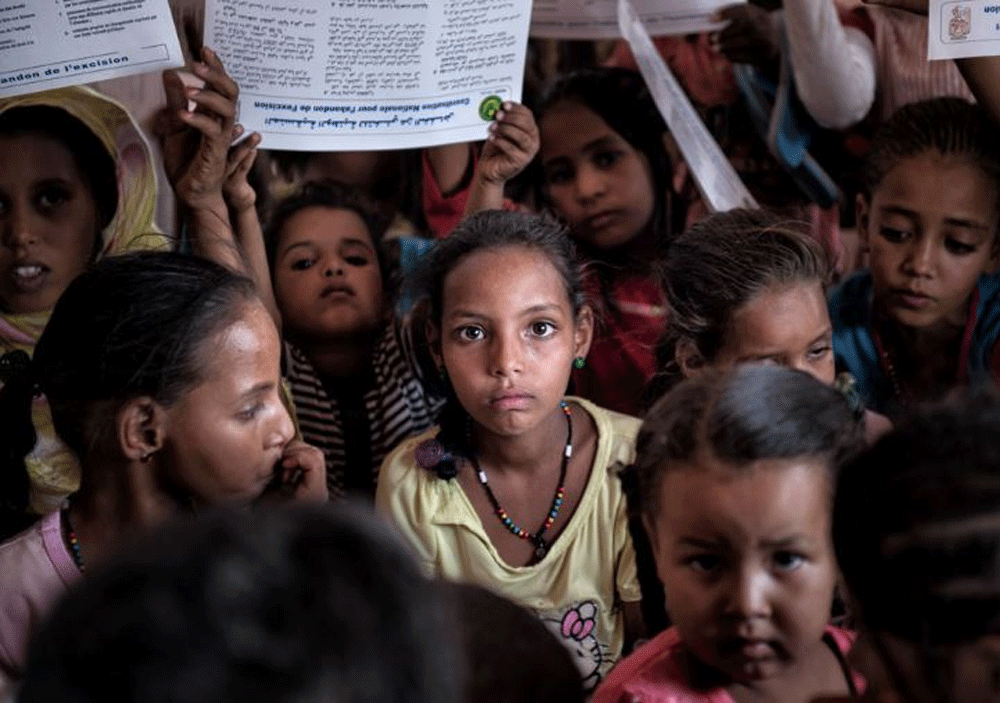
Economic Disparity and Nationalism – Part 2
By Dr. Lionel Bopage
Concentration of power
This situation usually leads to concentration of political and decision-making power in the hands of a few. This could lead to suboptimal use of human resources and cause political and economic instability. In turn, this will obstruct the ability to absorb foreign direct investment, which the capitalist governments mainly rely upon. Misery, poverty, and hopelessness could become pervasive in such a society. This provides an ideal environment for demagogues to raise their ugly heads.
These demagogues will make high pitch noises like saviours, without providing any solutions of substance. Nevertheless, such demagogues can raise a glimmer of hope among the ones whose lives have been adversely affected by this inequity. These nationalistic divisive demagogic leaders can emanate from any ethnic or religious background. Even if they utilise something that looks like a policy, it is solely a tactic used for grabbing power. Once in power they ditch or forget these policies, like those pledging to improve citizens’ economic circumstances and to eliminate their economic exploitation.
The 2008 economic recession that is considered the largest since 1929 created serious political repercussions. As a result, fundamentalist nationalist and religious currents came to the fore in many parts of the world. National and religious supremacy came to be asserted through violent extremism, mostly authoritarian and gave rise to many fascist trends. Simultaneously, political sentiments of certain segments of populations started moving towards extreme right-wing ideologies. Centralisation of decision making power in the hands of an autocrat as discussed is a manifestation of an extreme form of nationalism associated with fascist inclinations.
Concentration of power in the hands of an autocrat can be achieved via presidential and parliamentary elections or through extra parliamentary means. In the US, mostly racist fundamentalist right-wing groups brought Donald Trump to the Presidency. In many Nordic countries right wing groups have been elected to govern. Turkey extended the presidential term and also delegated prime ministerial powers to Tayyip Erdogan. Russian Federation concentrated power in Vladimir Putin’s hands and China made Xi Jinping president for life. Much closer to Sri Lanka, India, despite his hands being stained with Gujarati Muslim blood, Narendra Modi was made the Prime Minister.
Fascism
Fascism is based on the superiority complex of a nation bound by race, ethnicity or culture. This nationalist ideology is upheld by an anti-democratic totalitarian state. A fascist state needs to be totalitarian to ensure that its citizens support controlling aspects of their lives such as leisure time, education and political activity to ensure their support for the regime. Democratic elections do not need to ensure that candidates have national interests at heart. Parliament can become a talk shop and a rubber stamp instead of being a forum that devotes time to discussing, formulating, enacting and implementing policies. If other parties exist, pursuing an ultranationalist goal may be challenged; hence the need not to have other competing parties in parliament.
Democracy can be weak when a regime is incompetent or unresponsive, or when democratic traditions are not entrenched in the social fabric of a country. As a result, citizens become disenchanted and are willing to abandon democracy for another ‘stronger’ and ‘stricter’ regime. Fascism in the guise of ultra-nationalism flourishes in such an environment where democracy is weak, and nationalism is strong. This provides an ideal environment for fascism to replace the weak regime and effortlessly flourish for some time.
How does one come to support demagoguery? When income inequality prevails, most people, especially those at the lower end of the income spectrum find it extremely difficult to meet their needs, whether they are basic economic needs, psychological or self-actualisation. So, it is not surprising that fundamentalism, discrimination, racism and sexism become prevalent in society. Humanity at one time or another has had to confront such issues. When faced with socio-economic and political crises, people will use whatever means available to realise their needs. That is when people start relying on demagogues. That is how fascist trends have established roots in many parts of the world.
Over the past several decades in the western world, and certainly before that in some countries in Asia, totalitarian currents have surged under many pretexts. Humanity easilybecomes blind when they cannot satisfy their survival needs. This was the post-World War 1 scenario in both Germany and Italy. Italian and German democracies and democratic traditions were only recent and had weak roots. Unemployment grew with the economic crisis post-World War 1. The Treaty of Versailles made Germans culpable for starting World War 1. They had to accept punitive reparations and significant territorial concessions. Italians contended that they were not bestowed with the territory that should have been awarded to them. Feeling humiliated, national resentment became omnipresent.
The Fascist and Nazi parties promised to restore their respective country’s national greatness. Hence, Italians and Germans started supporting fascism. Germany and Italy pursued their national superiority complexes via the Italian Fascist Party and the German Nazi Party. Benito Mussolini, the leader (Il Duce) of the National Fascist Party intended to “guide the material and moral progress of the [Italian] community.” Adolf Hitler (der Führer) of the National Socialist German Workers’ Party wished to re-position the German nation as “the culture-founder of this earth.” They wanted the loyalty to their nations to be above and beyond religion and social class."
To realise such goals, they needed an anti-democratic totalitarian state that would decimate any prevailing democratic systems and institutions. Mussolini removed all politicalopposition by employing his secret police and banning worker strikes. He and his followers of the Italian Fascist Party consolidated power by enacting laws and employing violent means that transformed the nation into a one-party dictatorship. His aspirations for creating a totalitarian state ended when he was deposed by the King. Yet, in a few months’ time, he established a pro-Hitler puppet regime in northern Italy and became the leader of the Italian Social Republic. In 1945, while fleeing with his mistress, he was captured and summarily executed.
Hitler believed that the Jewish people were responsible for the economic exploitation of Germans during World War-II. Germans not only accepted Hitler’s falsified version of events, but condoned his savage barbarism, simply because this was justification for their own personal economic benefit.
Part 1: https://isis.lk/featured/1738-
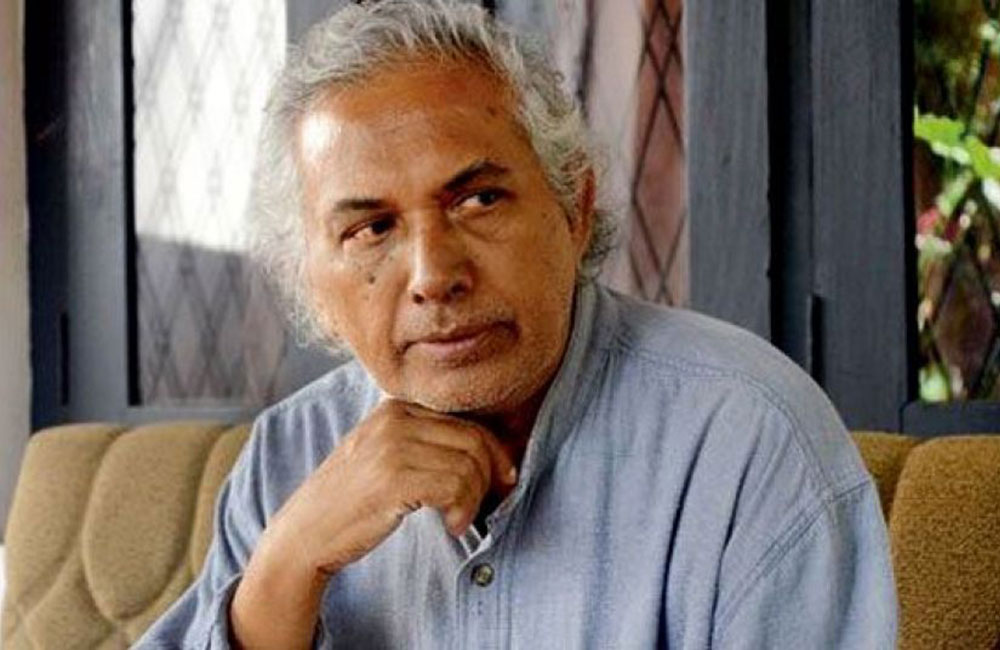
Do not look back; look forward to a pleasant future
By Dr. Vickramabahu Karunarathne
While Donald Trump was having discussions with Polpotian communist leaders of North Korea to negotiate no conflicts and peace, there were clashes between fascist racist demonstrates and left oriented anti fascist organizations in several western cities. In the protest in London police were forced to escort around 20 neo-Nazi protesters out of Westminster after they staged an “anti-Jewification” protest. Hundreds of counter-protesters chanted “Scum, scum, scum” as they followed the far-right activists from Whitehall towards Westminster tube station. Lines of police kept the two groups apart. The fascist demonstration against a Jewish neighborhood watch group, was originally due to be held in the strongly Jewish populated north-west London, but was confined to a static demonstration in Whitehall. Their numbers were dwarfed by anti-fascists, who targeted them with chants of: “Nazi scum – off our streets”, drowning out speeches the neo-Nazis made from behind police lines.
Far-right activists had planned their protest for the Sabbath in an area with a 40% Jewish population. They planned to burn copies of the Talmud – the book of Jewish law and tradition – and effigies, in private in order to avoid arrest but filmed for sharing online. But the Metropolitan police decided to impose conditions under the Public Order Act 1986, moving the demonstration to Whitehall and limiting it to one hour. They said senior officers did not have the legal power to ban a static protest, had a duty to safeguard the right to protest and could not impose unreasonable restrictions upon that right. So we can see how British workers and radicl professionals treat fascistic politics. This is the modern advice given by them.
We said the defeat of no confidence against Ranil was a people’s victory, forced through the parliament by the voice of the people who wanted to continue the democratic revolution started way back. Then there was baking to the ideals of democracy and workers, professionals and Tamil speaking people stood loudly with the man who dared to save the country from the disaster of the war. Smaller nationalities in the country new very well what is coming with the blessings of the fascistic Mahinda Chinthanaya. With that victory people expected Ranil and other leaders of Yahapalanaya will take this hard won victory seriously and devote more time to finish the back load of the democratic revolution. In Marxian terms people donot want a Kerensky and on the other hand do not demand a Lenin; but they have the right to demand that Lanka should go at least in the path of late leader of South Africa.
Yes, at that time Ranil did the right thing. It was against wishes of many that Maithripala was selected as the common presidential candidate to represent all political parties and all national and religious communities that were suffering under fascistic repression by the Mahinda regime. It became an attraction in the eyes of the international community which was on the verge of sanctions. All sensible people accepted the period of Mahinda regime was really bad. All decency and human rights were buried, and a handful of people, mostly from one family dictated the country’s future. They were no doubt taking the masses of this country, towards the dark hells of bad governance. Hence the liberation motto became Yahapalanaya or Good governance. On the other hand, as the economy was plundering towards disaster. It is the truth when Ranil says that today Lankans are paying for the losses made by Mahinda. At that stage his advisers prompted President Mahinda to call elections two years ahead, when he was enjoying Executive power, Legislative powers, including provisional and Local Government powers. One could argue if the economy was flourishing there was no need for an advance election. This fact alone is more than enough to answer the status of the country in 2015.
President Sirisena made the right move by carefully committing as a common candidate to establish democracy, equality and freedom in a common struggle with parties of the common front. To day he is under pressure to opt for saving his party that he served as Secretary General. However his inability to control the Rajapaksas and the SLFPers in Joint opposition shows his weakness. Many believe that increasingly he is becoming a puppet in the hands of Mahinda clan while the UNP has been the victim of this set back of his weakness in political leadership. His political mistakes were evident in his appointments made to various commissions and state enterprises. It appears as if the president hardly made proper consultations with PM! He was unable to take disciplinary action on his SLFP members. On the other hand Maithree took initiative to remove the then Bribery Commissioner, Dilrukshi Dias Wickremesinghe and created a vulgar situation.
In the last period Prime Minister and the Cabinet were blamed for common mistakes, the Head of State still with Executive powers did not defend when it mattered. At first clearly Ranil and the UNP were irresponsible in responding to the media; later Ranil’s pragmatism prevailed. May be discipline would serve their needs in the long run. That may not happen. Popular culture is to take the attacks on the ruling elite for every day fun. Even in the days of kings up to the British governors that was the tradition. Even today same aberrations are continuing.
Sadly the President saw the bond scam as the biggest sin of this country, which is calculated at less than $ 80 million. Money is not hidden and that can be traced. It could be a part of a political programme. On the contrary, Mahinda is supposed to have $ 600 million in a foreign account in a safe haven. That is just one example of the corrupt regime that ridiculed this nation and robbed it left right and centre. In the mean time the media of this country, especially the electronic, have failed to be the fourth pillar of democracy and are dragging this country to be once again handed over to a pit of snakes. It is no doubt; the current direction of this country is being dragged into uncertainty and darkness. Under this uncertainty Maithree is operating. His agenda is now clear, that he is trying to continue his political life by retreating to linkup with the pro Mahinda forces once again. However efforts for a new understanding have been fruitful we are told. May be the president wants to be a party to democratic revolution still continuing. President must admit his dream of resurrecting new Bandaranayake era has ended up resurrecting a SLFP where fascistic Mahinda is still calling the shots. Last decisions of the parliament must open the eyes of every body to the real wishes of the people. Mahinda regime is a closed chapter in the history of Lanka. It is dark and sad chapter, not even a live and pleasant President of the country could give a new life to that political Black Death. Do not look back; look forward to a pleasant future.
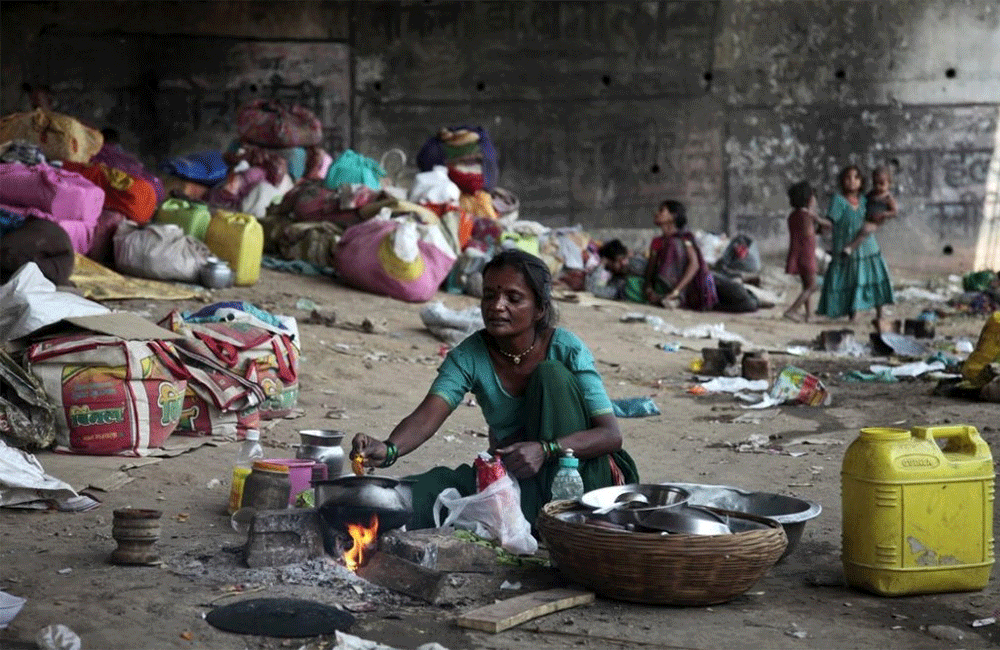
Economic Disparity and Nationalism – Part 1
By Dr. Lionel Bopage
The cold war in the form that existed in the last century disappeared with the collapse of the state capitalistic model of ‘socialism’ as was practised in the Soviet Union and the Eastern Bloc. The world is left with a few countries that follow the same state capitalistic model. Despite the belief that the cold war ended with the collapse of the Soviet Union, a new cold war appears to have emerged with a vengeance. Though the protagonists of this appear to be the corporate capitalist interests of the United States and its allies versus the Russian Federation and its oligarchs, the real focus of the west’s fear and ire could be the Peoples’ Republic of China.
Since the collapse of the Soviet Union, the corporate capitalist system has reigned supreme almost all over the world, with its attendant severe socio-economic and cultural crises. Peoples’ democracy in the proper sense of the word has not been able to survive with the reappearance of unbridled capitalism in the corporate and state sectors. Such crises have made many western capitalist societies almost dysfunctional. Under open economy and free market conditions, economic disparity has continued to surge, mainly due to the regulatory environment imposed by the ruling corporate interests and the free hand given to them to increasingly monopolise global resources.
Historically and in the present era, governments elected by the populace that are not compatible with the interests of powerful capitalist conglomerates and states have been overthrown by killing tens of thousands of men, women and children to bring to power corporate friendly tyrants. The United Nations is also not immune; it has been made to toe the line of neo-liberal and conservative regimes with threats of sidelining it financially. It has been used against those who oppose the new neo-liberal agenda. In this sense, the United Nations has turned out to be an impotent, stranded entity, a mere voyeur, made to watch impotently as blood is been spilt in every corner of the world.
Economic Disparity
Corporate economists are neither concerned about humanity nor are they compassionate. They do not care about economic and income disparity; for them people are either consumers or units of production. Their logic is that people need to work harder to access upward social mobility. Income inequality they argue, keeps their motivation up. They assert that wealth redistribution through social security measures and other welfare programs are expensive. So, despite many faiths preaching compassion, the world has become a more miserable place. Opportunities for economic growth and development have tumbled further downwards.
International Monetary Fund (IMF) and the Organisation for Economic Co-operation and Development (OECD) are not institutions propagating humanitarian views. Yet, they have concluded that income inequality is affecting economic growth. The Center for European Economic Research (ZEW) has contested these findings, but realpolitik indicates that income inequality is on the rise and low-income households increasingly find it difficult to invest in higher education. Thus, their opportunities for upward social mobility are impaired.
According to the World Inequality Report, income inequality in all regions has increased in recent decades, and in the Middle East and sub-Saharan Africa inequality is obscenely high and persistent. Inequality in India and China are also of massive proportions. The gap between these countries and those in the west has become narrower, thus reducing global inequality. The global Gini Index has dropped to 65 due to rapid economic growth in several Asian countries. By 2035, the Index is expected to drop to 61.
Rise of nationalism
Accordingly, global income inequality between nations though high is reducing, however the gap between the rich and the poor within countries has widened. Such trends as a whole and individually may explain the rise of populism, nationalism and protectionism in some parts of the world. Regimes pursuing a capitalist path of development have found it difficult to reverse or control this trend of increasing inequality. As recommended and sometimes demanded by the IMF and the World Bank, structural reforms in the form of privatisation of public assets have been carried out in many such countries with devastating results impacting on social fabric.
Regimes in Sri Lanka have pursued a similar path. The global experience during the past several decades is that such measures have made these countries rich as a whole, but with income inequality predominating. In this process, governments have become poorer. According to the World Inequality Report, this is one of the major factors restricting the ability of regimes in tackling inequality.
The current situation in Sri Lanka exemplifies this process. It is characterised by the loss of confidence in both state and corporate sectors and institutions, erosion of social bonds and increasing uncertainty about the future. Widening inequality has significantly affected economic growth and macroeconomic stability. Inequities related to accessing education, health care, and finance have become prevalent. Thus, certain segments of society are being subject to persistent disadvantage.
The article is part of a four part series by Dr. Lionel Bopage.
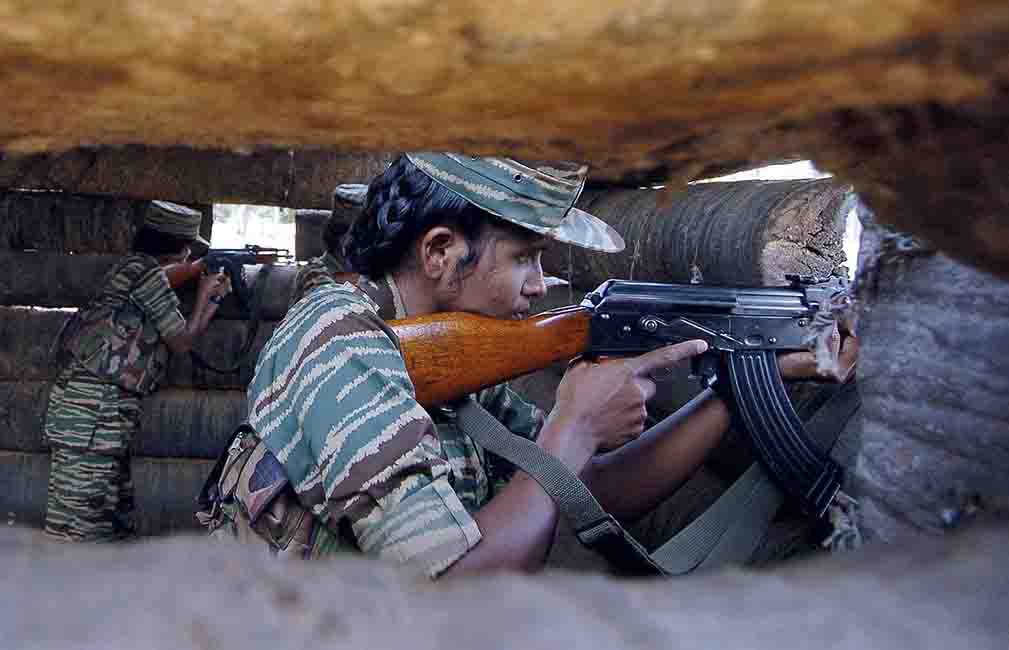
From soldiers to housewives: Women who fought as Tamil Tigers in Sri Lanka are forced into traditional roles
by Holly Robertson
JAFFNA, Sri Lanka — After her release from a rehabilitation camp for former Tamil Tiger fighters in 2011, one former member of the women-only Malathi Brigade was presented by Sri Lankan government officials with a sewing machine.
More accustomed to the rigors of warfare, the woman, who spent seven years fighting with the militant Liberation Tigers of Tamil Eelam (LTTE) after signing up as a teenager, had no interest in sewing. She tried raising chickens, but the venture failed.
“I’m tired of the burden I have become to my family,” said the 35-year-old, who asked not to be identified out of fear of repercussions. “Every time I go out, I have to ask my father for money. I don’t want this kind of life. I would have been a commander in the LTTE by now if it still existed.”
The LTTE’s three-decade campaign for Tamil sovereignty came to a bloody end in May 2009, as government troops crushed an insurgency that had cleaved the Indian Ocean island. Nine years later, the country’s north is picking up the pieces after being shattered by the lengthy war and its violent conclusion — and the women who fought with the rebels have had to navigate a perplexing transition.
Lured by an intoxicating promise of a Tamil homeland and female emancipation, women were recruited to the Tigers in large numbers and made up nearly one-third of the separatist organization.
But once the war ended, most found few options available to them aside from reverting to traditional roles. After years of equality with their male counterparts, they were suddenly expected to marry, have children and tend to household chores.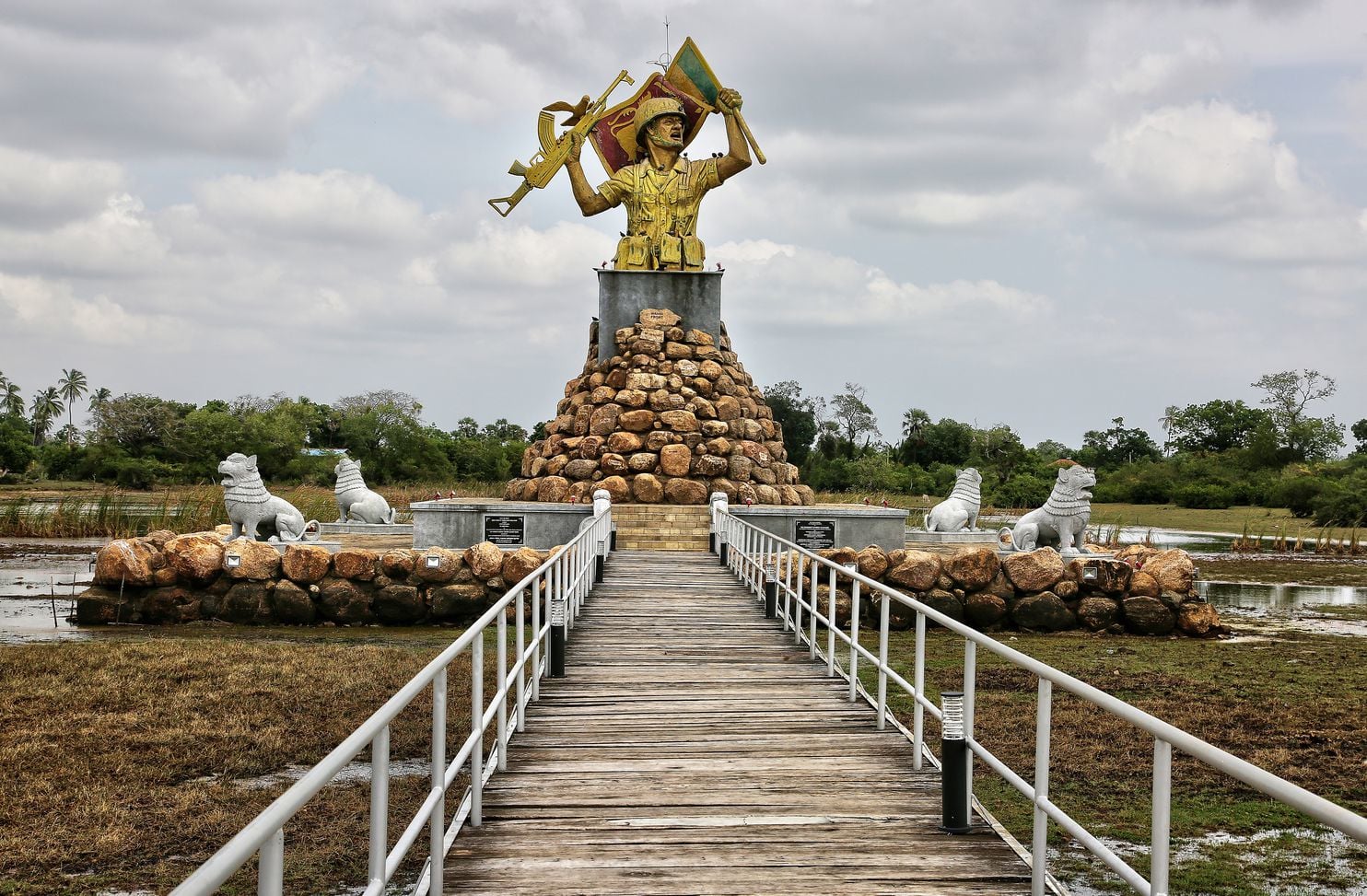
A monument in Puthukkudiyiruppu commemorates the Sri Lankan army's victory over the LTTE. (Creative Touch Imaging Ltd./NurPhoto/Getty Images)
There’s nothing else to do, said a former Sea Tiger — a veteran of the LTTE’s naval division — who also asked not to be identified.
The 39-year-old still has shrapnel peppered throughout her body from battles waged during the 1990s. (She signed up at the age of 12.) She managed to keep from being swept into the system of government-run camps set up to hold the defeated rebels, camps that have been dogged by allegations of torture and rape — and that has enabled her to avoid being placed under surveillance.
“I wanted to start offering karate and self-defense lessons to girls,” she said, “but my husband said, ‘No, don’t do that, it will draw attention to you, and people will start suspecting your background.’ ”
Even today, those who survived the conflict find themselves struggling for acceptance — and a steady income.
Alan Keenan, the International Crisis Group’s senior Sri Lanka analyst, said little has been done to address the basic socioeconomic needs of these female ex-combatants.
“Female fighters have suffered from a range of extra disadvantages — including heightened poverty and vulnerability to sexual exploitation and violence — and the government has developed no comprehensive policy to address these,” he said. “And ex-combatants continue to suffer ostracization from the rest of the Tamil community, for a variety of complicated reasons.”
In their desperate final days, the Tigers alienated many Tamil supporters — who for years had remained loyal to their cause — by forcibly recruiting child soldiers and cynically using civilians as human shields.
The army, for its part, incessantly shelled designated “no-fire zones,” killing thousands and setting the stage for a fraught path to normalizing relations between Tamils and the Sinhalese majority.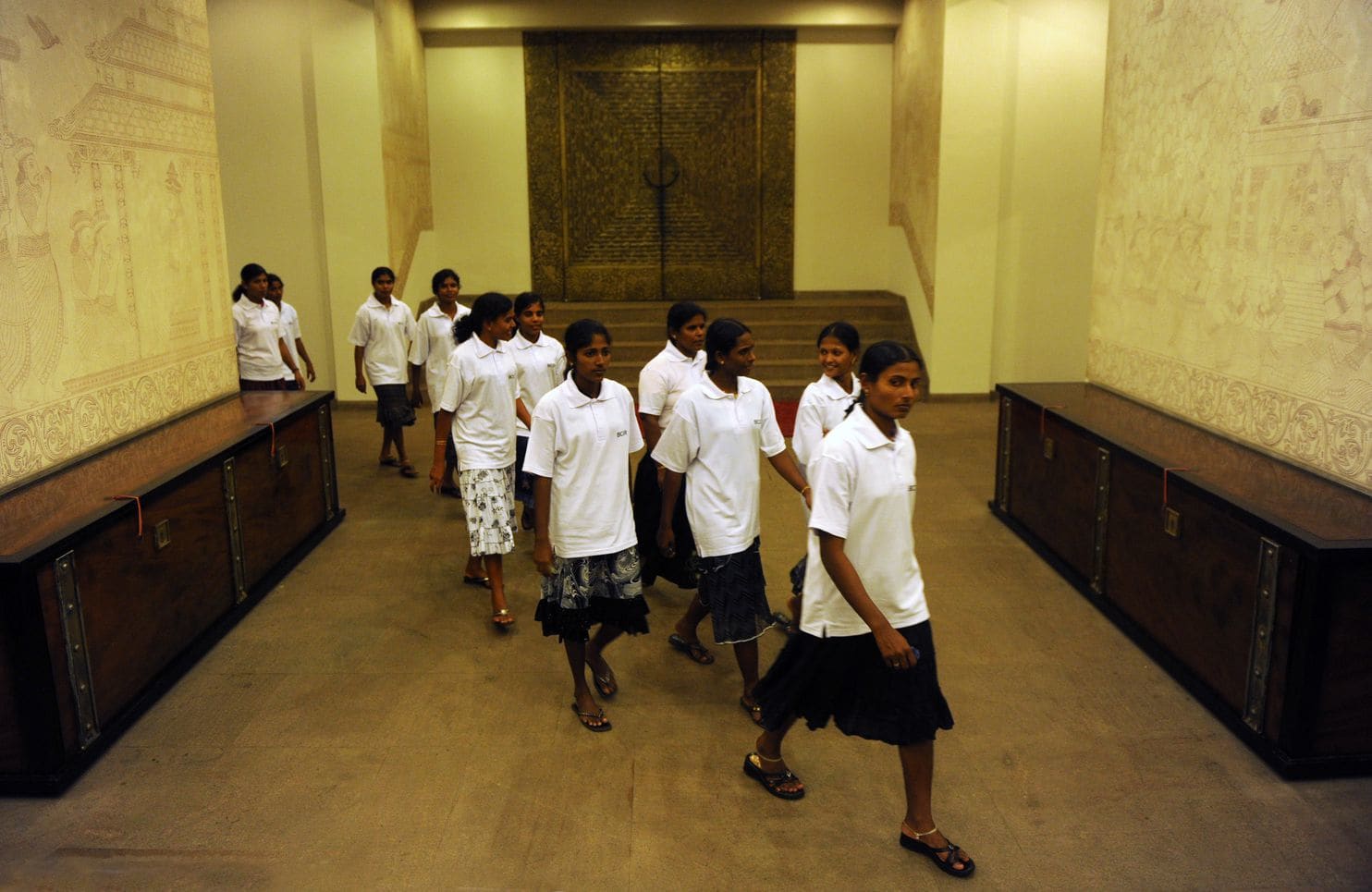
Former Tamil Tiger fighters walk through Sri Lanka's parliament building just outside the capital in 2011. (Ishara S. Kodikara/AFP/Getty Images)
For female LTTE cadres, the defeat marked an end to the militaristic brand of feminism that had earlier liberated them from social strictures. Now they had to swap trousers for saris and grow out their short hair to appease judgmental families and neighbors.
Ananthy Sasitharan, the Northern Province minister for women’s affairs, whose husband was a high-ranking LTTE leader, is one of the few Tamil female politicians and is regularly in contact with former Tigers who come to her for “livelihood assistance.” She said many are living a sparse existence without husbands or jobs and are careful to conceal their ex-combatant status because of continuing state surveillance.
“They dress in a manner so you can’t see that they are injured, but they can’t work much because of that,” Sasitharan said.
Their hidden struggle is illustrative of a society that in many ways remains fractured, although those fractures are masked by torpid reconciliation efforts and a stable economy as the government pushes its ambitious “Vision 2025” to achieve upper-middle-income-country status.
The north saw major postwar infrastructure investment under hard-line former president Mahinda Rajapaksa — who was also responsible for crushing the Tigers. But according to Jehan Perera, executive director of the National Peace Council, local workers were rarely hired for the projects.
Since President Maithripala Sirisena took office in 2015, the government has pulled back on large-scale infrastructure development in favor of housing projects that have had greater success in reaching the general population, Perera said.
“There has been a visible transformation, but the question is whether the benefits are going to the poorer sections of the population,” he said. “The people who are living in the rural areas and villages, or even in the main cities in the informal economy, have not benefited.”
The government has set aside approximately $80 million in its 2018 budget for reconciliation projects, including subsidies for businesses that hire at least five ex-combatants or war widows.
Announcing the budget — the first to contain a section specifically devoted to reconciliation — Finance Minister Mangala Samaraweeratold Parliament that for Sri Lanka to achieve its goal of becoming an advanced economy by 2025, reconciliation is “a must.”
“Despite winning the war, we have yet to win the peace,” he said, “and in order to do so, it is essential that we win the hearts of those in the war-affected areas.”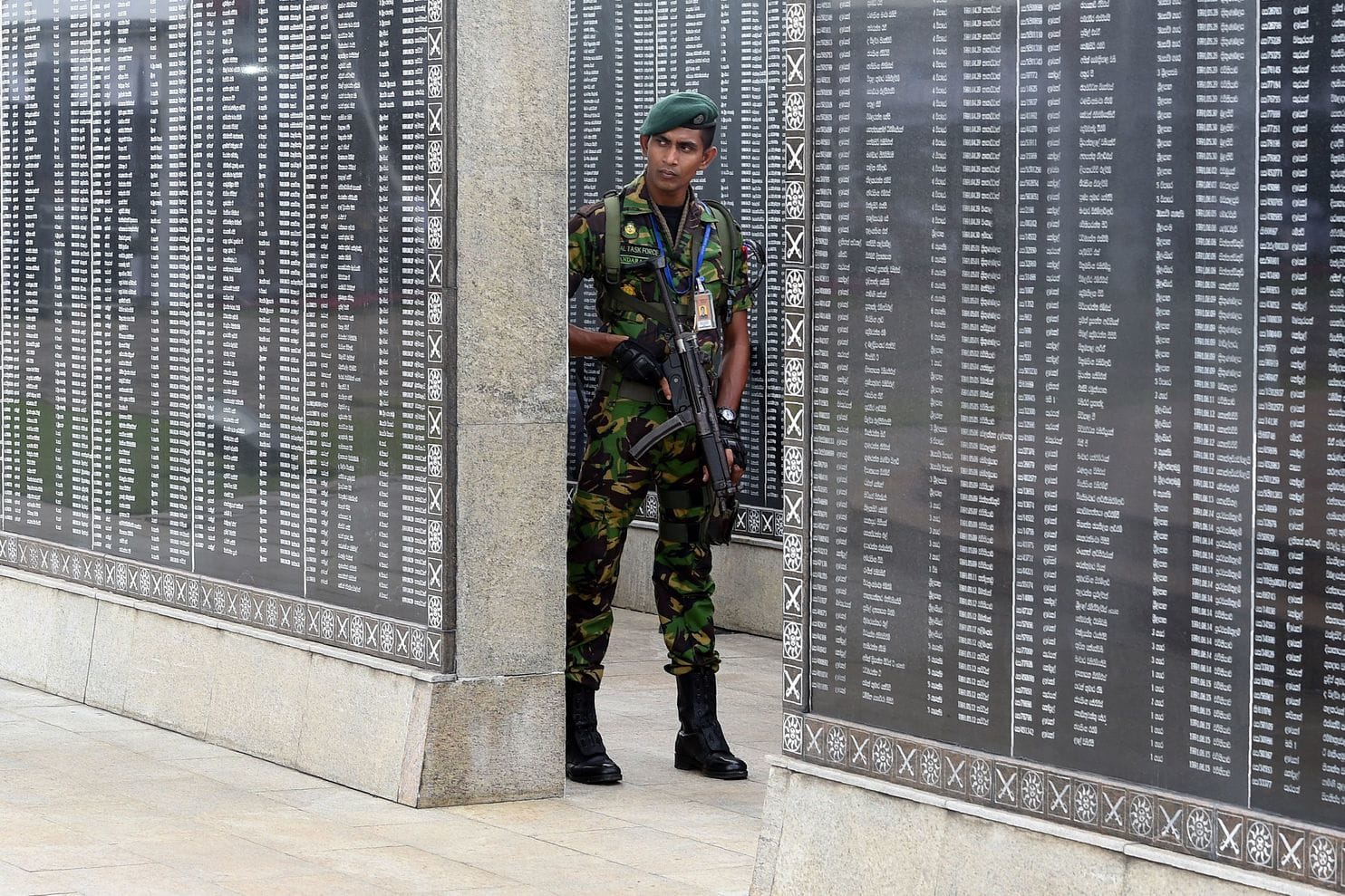
A Sri Lankan soldier stands guard at the memorial for fallen soldiers in the capital, Colombo, during a ceremony marking the ninth anniversary of the end of the island's civil war on May 19. (Ishara S. Kodikara/AFP/Getty Images)
Another ex-Sea Tiger — who joined in 2001, at 16, and spent eight years in and out of the LTTE — moved to a modest home in her new husband’s small village, where she said she is “limited in terms of what she can do as a housewife in this area.”
“I got training in how to make small snacks to sell at shops, and I was doing that, but now I’m feeling too unwell,” said the 33-year-old, who was pregnant and had flesh wounds on her right leg that she said were caused by the shrapnel that remains lodged there. She sustained the injuries after leading a group of female fighters into battle with the army in 2008.
Her husband is disabled, so with the added responsibility, “I don’t feel like the second-in-command,” she said.
Still, she added, “it was very difficult coming into a family setting, as a wife and mother.”
Thulasi Muttulingam contributed to this report.
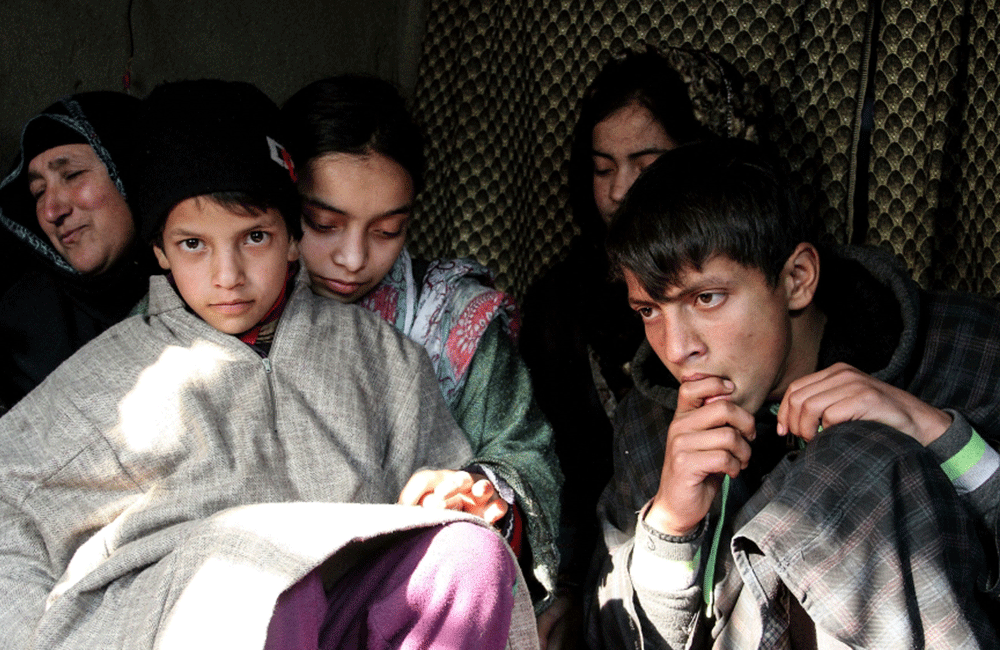
Kashmir's religious harmony a lesson in troubled times
‘In violence-prone Kashmir, groups band together regardless of religion, despite tensions in India’
Srinagar, Indian-administered Kashmir -Unaware of the tragedy that happened to his family, five-year-old Rohit Koul played in the courtyard while his three elder siblings sat in a dimly lit room of their house in Lavadora village, in south Kashmir's Anantnag district.
The children have not spoken much after their mother, Baby Koul, died three months ago due to chest disease. Nearly a year ago, their father, Maharaj Krishan, also died a natural death.
Muslim neighbours gathered at the home to offer emotional support to the Hindu children.
At a time of strained Hindu-Muslim ties in India, this unity in a remote village in divided Kashmir is exemplary.
Polarisation between the two communities has hit the country as right-wing groups engage in violence against Muslims because of their food and other social habits.
In April 2017, a Pew Research Center's study ranked India the fourth-worst country for religious intolerance out of 198 nations.
Indian-administered Kashmir is a Muslim-majority Himalayan region with Hindu, Sikh and Christian minorities, but living in harmony.
But the area divided by India and Pakistan had its share of tensions in the early 1990s, when turmoil forced many Kashmiri Hindus, known as Pandits, to abandon their homes and seek shelter in neighbouring Jammu and other parts of India.
According to one study, Kashmir had 140,000 Pandits in the early 1990s, but that number was reduced to 19,865 by 1998.
The Kouls are one family that decided to remain. The warmth and support demonstrated by their Muslim neighbours after Baby Koul's death vindicated their choice.
'Like our own'
To pay tribute to Baby Koul, villagers of differing faiths gathered to perform her last rites according to the Hindu tradition.
"Baby Koul and her husband raised their children while fighting poverty. Their death shocked everyone in the village. These children are innocent and losing parents in less than a year is a catastrophe for them. Their parents were young and very gentle," Sameena, a local woman, told Al Jazeera.
According to villagers, the children are reluctant to go with their relatives because "they get much love from their neighbours".
The children were not emotionally ready to talk to this reporter because their mother died just a few days earlier.
"Villagers have helped the family and we will keep doing this. They are like our own children and we will not let them suffer in any way," resident Ghulam Nabi Dar told Al Jazeera.
The example of Hindu-Muslim togetherness displayed in Lavadora village is not isolated.
During Amarnath Yatra, Muslims help their Hindu brethren to undertake the annual pilgrimage in the snow-capped mountains in southern Kashmir.
Earlier this year, villagers in Sumbal in Bandipora in north Kashmir cleaned the premises of a Hindu temple to perform puja (prayer) on the occasion of Maha Shivratri, an important festival for Pandits.
The acts of kindness have also been reciprocated by Hindus. Last November, a Hindu couple greeted the procession marking Eid-e-Milad-un-Nabi the birthday of Prophet Mohammad, by distributing candies to Muslims as a symbol of love and affection. A video of the Hindu couple handing out the candies went viral on social media.
Worshipping togetherIn Mattan, the houses of worship for Hindus, Sikhs and Muslims are just a few metres apart.
Ramji, 60, is a priest at the temple in Mattan. "We share a good bond with our Muslim and Sikh brothers. We take part in each other's festivals. We also attend funerals when someone dies in Muslim neighbourhood," he told Al Jazeera.
The Tral area of Pulwama, which has been at the centre of anti-government protests in the last two years, also has Sikh population of 8,165 as of the latest census of India living happily with 98,632 Muslims.
"We never feel differences with each other. We are always there for each other in good and bad times. They even attend funeral prayers of militants," Faizan Ahmad, a student from Tral, told Al Jazeera.
Mehjabeena lives in a village in the Quazigund area. Twelve years ago, her husband abandoned her with two children. She returned to her home to live with her father for several years.
However, being poor, her father could not feed the family and she started living in a rented accommodation. "I used to wash clothes and dishes of the people to pay the rent and feed my family," she said.
Then a Pandit, Brij Nath, donated a piece of land to her where she built a one-room mud-brick house with the help of her father.
"I have lived in the village with her father and there was the association of oneness. I gave her a piece of land as she is very poor and has no place to live," Nath told Al Jazeera on the phone.
Generations of cooperation
In October last year, a church bell rang for the first time in 50 years at Holy Family Catholic Church in Srinagar. Christians, Muslims, Sikhs and Hindus inaugurated the bell weighing 105kg.
According to village elders, examples of communal harmony have been passed on through the generations.
"Kashmiri culture is a mix of three religions - Hindus, Buddhist and Muslims - which has come from our ancestors," said Zareef Ahmad Zareef, a Kashmiri poet and social activist.
"Temples have bells hanging at their entrance. Similarly, we have chains at Sufi shrines in the valley, which is a cross-ritual. We had some Hindu artists who have written Na'ats [poetry in praise of the Prophet] while there are Muslim artists who have written kirtans [divine Hindu songs]."
But Zareef accused politicians of trying to create barriers between the different communities.
"Our thoughts have been divided. We had oneness in Kashmir culture irrespective of religion," he said.
Source : Al Jazeera

Sri Lanka Big Bad Wolf book sale from 28th June – 8 July
The 24-hour book sale returns to Sri Lanka with over 1.5 million books at 60%-80% discounts this 28 June – 8 July
The Big Bad Wolf Book Sale announced its return to Sri Lanka today at a press conference held at Park Street Mews, Colombo. Known as the world’s biggest book sale, the Big Bad Wolf Book Sale is set to opento the public from 28 June until 8 July 2018 at the Sri Lanka Exhibition and Convention Centre (SLECC) with 1.5 million books at 60%-80% discounts. Book lovers can enjoy 255 hours of non-stop book shopping at the Sale, which will be open 24 hours a day throughout the 11 days of the event.
Selected invitees will have the chance to attend a special preview of the Sale on 27 June from 10.00am – 11.00pm, a day before it opens to the public. Visitors can win preview passes through contests on the Big Bad Wolf Facebook pageand through their media partners.
The media launch saw the attendance of Andrew Yap, Founder and Managing Director of Big Bad Wolf Books, Dipak Madhavan, Partner of Big Bad Wolf Books and Nishan Wasalathanthri, Director of ProRead Lanka (Pvt) Ltd. The event is supported by The Ministry of Education of Sri Lanka. Event partner for the event includes, Bank of Ceylon – the official banking partner, Mobitel – the official telco partner, and The Capital Maharaja Organisation Limited.
“We are truly excited to be back in Sri Lanka with an even bigger and better book sale this year. Last year’s event was a huge success and an eye-opener on how enthusiastic Sri Lankans are for good quality, affordable English books. We’ll be bringing over a wider range of titlesforbook lovers in Sri Lanka this time around,” shared Andrew Yap. “We are grateful to our partners and other organisations who have pledged their support to empower Sri Lankans with more English learning opportunities.”
Speaking at the event was also Big Bad Wolf Books’ local partner, Director of ProRead Lanka (Pvt.) Ltd, Nishan Wasalathanthri. “We are pleased to bring the Sale back to Sri Lanka for the second time.Last year was the first time a book sale of this scale had ever been held at Sri Lanka and we pulled off an unforgettable event. We invite people of all ages to visit the Big Bad Wolf Book Sale this time around for an even bigger and better experience,” said Nishan Wasalathanthri.
Held in October last year, the Sale is returning earlier this year in June, much to the joy of eager readers. Readers can expect to find over 1.5 million new English books, ranging from fiction, bestsellers, literature, non-fiction, business books, cookbooks, art and design, coffee table books and more, priced at 60%-80% off regular retail prices.
Parents can also expect an extensive collection of children’s books, including bedtime stories, colouring and activity books, educational books and interactive books, all at 60%-80% bargains.
“We anticipated a high demand for children’s books last year, but we were surprised tofind out that there was also an enormous demand for fiction titles, which flew off the shelves. We’ll be bringing over an exciting variety of fiction books and bestsellers to meet the demand of readers this year,” said Dipak Madhavan.
In an aim to make affordable English books available to all, Big Bad Wolf Books will also be giving books to communities in need through their Red Readerhood programme, supporting the The Capital Maharaja Organisation Limited’s Gammadda initiative. Customers can participate in this worthy initiative by purchasing books at the Sale and donating them at the Red Readerhood booth.
As part of another initiative to advocate greater English literacy among people of Sri Lanka, Big Bad Wolf Books will be working with the Ministry of Education to provide local O/L top scorers with an opportunity to visit the international book sale. Last year, Big Bad Wolf Books invited top scholarship scorers from flood-stricken areas to the Sale and provided them with a trolley full of books to take home.
Book lovers will also stand a chance to nab limited edition books, exclusive Big Bad Wolf t-shirts and collector’s items at the Sale.Starting this year, they can collect official Big Bad Wolf shopping bags at the Sale, with the introduction of limited edition reusable cloth bags to replace plastic bags in a commitment towards sustainability. Hungry readers can also enjoy a variety of meals and snacks at the outdoor food court that is powered by uPay, organised by Hisham Cader of The Sandwich Factory.
Source : LBO
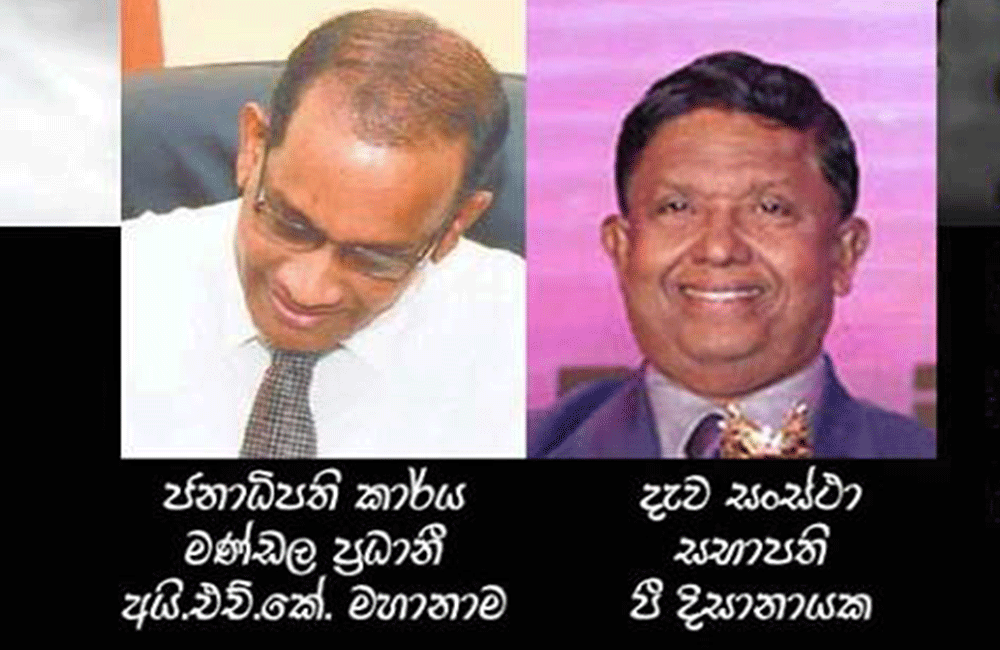
Sugar cane planting beginsSugar cane planting begins
On April 2017 land for the cultivation of sugar cane is given and on September 17, 2017 the cultivation begins. At this point Mahanama once again threatens the investor that unless he receives his bribe he will retake the land earmarked for sugar cane planting. By this time the investor had brought his British and South African partners to Sri Lanka.
Feeling that he has no other choice the investor approaches the Bribery Commission on February 2018. According to what has been revealed, Dr. Mahanama has told the investor that he needs to take a bribe because he wants an income after he retires. Mahanama has claimed that he plans to construct a building near the University of Kelaniya and rent it out.
Extorting money from investors
One of the tactics used by unscrupulous people like Mahanama is that they prepare cabinet papers with that make it difficult for investors to commence work, unless a bribe is paid. For example when preparing the cabinet paper regarding this investment, Mahanama states that none of the old machinery of Kantale Sugar factory can't be given to the new company and that he proposes to sell the old machines as scrap iron. In fact he calls for a tender to sell these machines at an estimated cost of Rs 340 million after misleading the President and the Prime Minister.
Article 7.9 of the shareholders agreement states that :
The investor/company agrees to take possession of land and premises from the GOSL described in Article 7.1.1 (other than that described in Article 7.1.1 (c) with all the infrastructure and machinery, on an as is basis and no guarantee is given that any infrastructure, machinery, buildings or implements subsisting on the land or premises are usable or suitable for any purpose. The company may do as it may deem appropriate with the infrastructure, machinery, buildings or implements at it’s own cost or use them as it may deem suitable.
Thus all the 'infrastructure, machinery, buildings or implements subsisting on the land or premises are usable or suitable for any purpose' must be handed over to the investor for the 51% stake the government gets. Mahanama attempts to create an impression that the company is trying to sell the machinery as scrap metal and obtains an estimate to sell them, since there is no assistance from the government, the investor gets into trouble. If they go for arbitration, that committee is appointed by the Ministry Secretary. Mahanama tried to obtain US $ 3 million to release these assets to the company or around Rs 540 million. Then he later reduces his demand to Rs 100 million.
MG Sugar goes for arbitration in Singapore against the constant harassment and Mahanama retires, only to return as President’s Chief of Staff. He again approaches the investor promising to iron out all the issues he has and brings in Chairman of the State Timber Corporation P. Dissanayake to act as a mediator.
Dissanayake who was the secretary to former President Chandrika Bandaranaike is a past master of extortion. He was known as 'Bar Piya' among MPs in the 90s and early 00s and has amassed considerable assets including two two story houses at Gregory's Rad, an apartment at Union Place, three bars in Gampaha, one in Matara and two houses in Battaramulla.
However the two men didn't know that the investor had already approached the Bribery Commission and that a number of officials had been keeping an eye on this case for a while.
This incident must not be considered an isolated incident or an indication of increasing corruption under the UNFGG government. For decades the investors who come to Sri Lanka have learnt that they need to pay large bribes to get their work on track. An investor who refuses to pay a bribe has no one to turn to. The BoI, whose Chairman is the highest paid state official (Rs 1 million), takes no responsibility after the initial agreement. In fact accessing the Chairman is more difficult than reaching the President or the Prime Minister. The Kantale investor told me that the only person who listened to his grievance was former Finance Minister Ravi Karunanayake.
He is also a businessman who has been working in Sri Lanka since 1994 and has high level connections. Any other investor would have just quit and told his colleagues never to invest in Sri Lanka.
The other point to consider is how Mahanama became the Chief of Staff of the President. I have repeatedly complained about Mahanama and a number of other organizations have raised concerns about his behaviour. However despite all of that he is appointed Chief of Staff of the President. I have also raised concerns about seven other state officials but there has been no investigations against them. This makes the public disillusioned about the government, which can only benefit the Rajapaksa's.
Page 8 of 12
